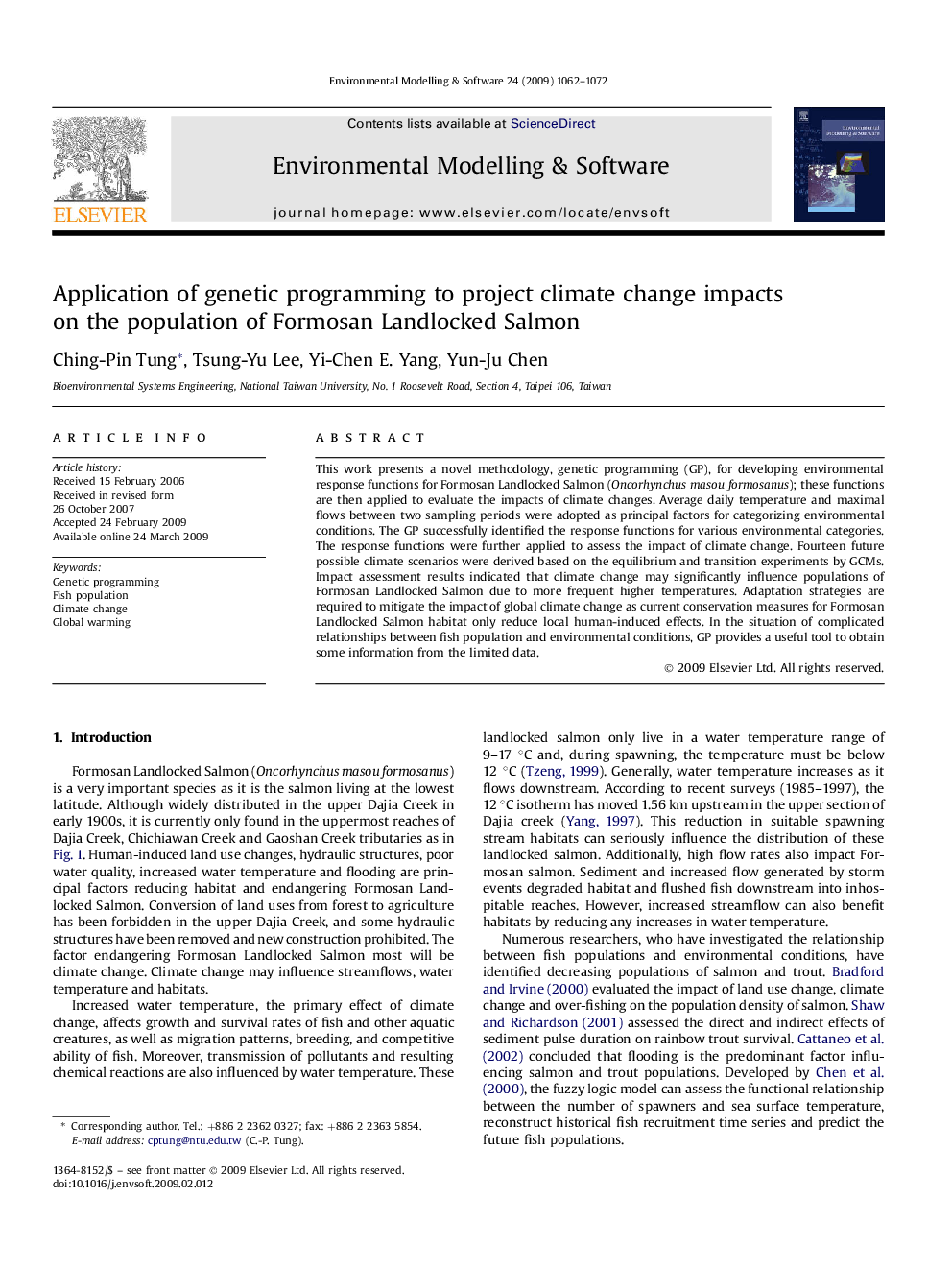| Article ID | Journal | Published Year | Pages | File Type |
|---|---|---|---|---|
| 568727 | Environmental Modelling & Software | 2009 | 11 Pages |
This work presents a novel methodology, genetic programming (GP), for developing environmental response functions for Formosan Landlocked Salmon (Oncorhynchus masou formosanus); these functions are then applied to evaluate the impacts of climate changes. Average daily temperature and maximal flows between two sampling periods were adopted as principal factors for categorizing environmental conditions. The GP successfully identified the response functions for various environmental categories. The response functions were further applied to assess the impact of climate change. Fourteen future possible climate scenarios were derived based on the equilibrium and transition experiments by GCMs. Impact assessment results indicated that climate change may significantly influence populations of Formosan Landlocked Salmon due to more frequent higher temperatures. Adaptation strategies are required to mitigate the impact of global climate change as current conservation measures for Formosan Landlocked Salmon habitat only reduce local human-induced effects. In the situation of complicated relationships between fish population and environmental conditions, GP provides a useful tool to obtain some information from the limited data.
